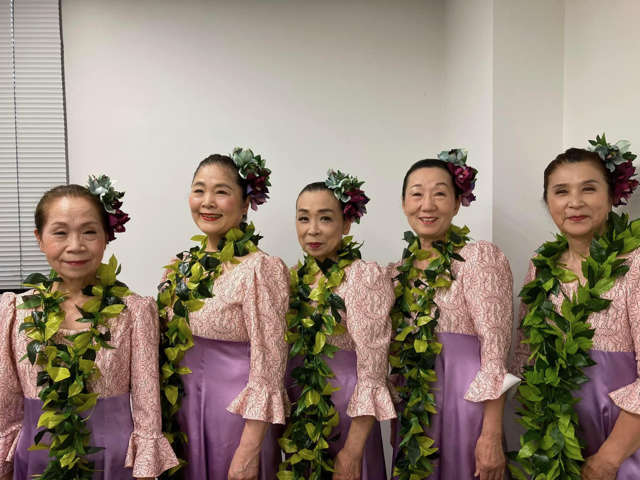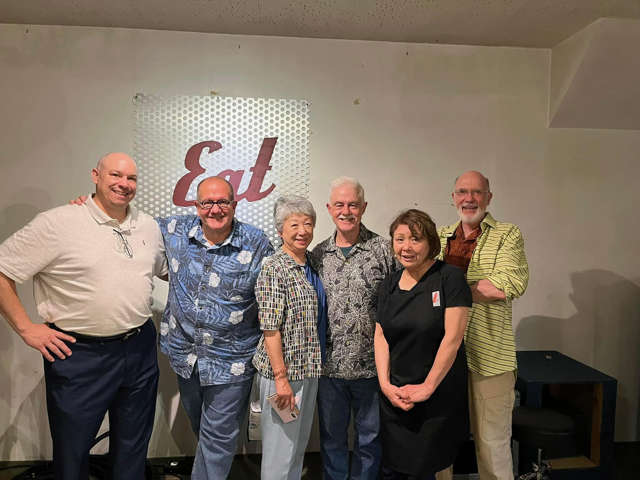
This year, Sept. 16 is another example of a “Happy Monday” national holiday in Japan called “Respect for the Aged Day” (Keirou no hi in Japanese). These holidays are celebrated solely on Mondays each year in order to allow people a much-deserved and occasional long weekend.
While Japan also celebrates Mother’s Day and Father’s Day, unofficially, as these are not national public holidays, I suppose “Respect for the Aged Day” can be considered a sort of “Grandparents Day” because this formally observed, national public holiday is set aside each year to allow adults and children to show respect and appreciation to the elders in their lives.
Many families will make it a point to visit elderly relatives and neighbors on this day to show their love and appreciation to them, often with gifts of food or flowers. Or they may invite them to share a meal together, either in their home, or at a favorite family-style restaurant.
As a nation, Japan uses this day to remind its citizens to reflect upon the important and salient contributions the older generation has contributed throughout their lives to society and to their individual families. Generally speaking, Japanese society already offers its elderly citizens a pretty high level of respect and deference, but it is so nice to have a special day set aside especially for older people to be recognized and appreciated.
Now that I am finally in the age bracket that puts me squarely in the elderly category, I have come to appreciate the little perks afforded to older people here in Japan, such as discounts in restaurants, at movie theaters, and other public venues. Since I am currently using a cane regularly due to a knee injury I received while in Amsterdam last January, I have noticed a higher level of respect from young people, especially on buses and trains regarding seating.
There are specially-designated seats called “priority” or “silver” seats on public transportation reserved for people who are older or who use a cane to walk, and I have detected lately that normally younger, able-body people will jump up if sitting in one of these seats to allow an older person or a walking-impaired person to sit down — not always, of course, but ordinarily.
I am definitely not above tapping my cane in front of one of those seats as a hint that someone in need is standing on a moving bus or train and should be allowed to sit down.

At my university, my students are all very thoughtful, helpful, and assisting, if they see me carrying a bag while trying to climb a flight of stairs using my cane. They nearly always will offer to help me carry the items to my office. The government believes that by having a special day designated in recognizing elderly people, it serves as a yearly reminder to younger people to improve their overall attitude and quality of care toward seniors in society and within their families, and it ameliorates younger people’s understanding and attitude toward the elderly.
It serves as a gentle reminder, I suppose, that older people still have much to offer society in the way of a wealth of knowledge and experience, and it encourages people to take a moment to reflect earnestly upon all the valuable contributions seniors have made to society and it also is hoped to refresh people’s memories that older people need to be treated with respect and dignity.
Most certainly this concept comes from Confucianism because filial piety, where the elderly are honored and revered by the younger generations, is pervasive and this concept no doubt influenced Japan and how the Japanese view the older generation.
Japan has many amenities to assist the elderly in their daily lives that seem to be commonplace here. Unlike in decades past, Japan has made a strong push to make public buildings and transportation more age-friendly with escalators and elevators, or slopes for wheelchairs much more widely available. I think this is one of the reasons why many older foreign tourists enjoy visiting Japan because of these services that make it easier to get around here.
It wasn’t always like this, of course, but gradually, Japan has made huge efforts to make sure that venues and buildings are more easily accessible.
Now that I use a cane, I am very appreciative of little gadgets and devices that are often found in public places (like banks, shops, and offices) where one can rest a cane easily without it falling to the ground. In restrooms, too, there are often little clamps that you can push your cane into to keep it upright and steady. Some of the nicest handicap-accessible restrooms I have ever used have been in Japan.

A group of friends who are 60 and over enjoying socializing. Only one person is under 60, guess who?
Also, I have found one overwhelming attitude by the Japanese that I personally find encouraging and refreshing is how society seems to be less concerned about extending people’s lives without maintaining a higher quality of life. Hence, many tools and services are introduced to assist the elderly in their daily lives. Many community centers offer numerous programs to keep the elderly in the community active and healthy.
For example, my Japanese mother-in-law actively practices hula dancing and belongs to a karaoke group where they meet and sing songs together. There are also “day-services” available for seniors to go and socialize, allowing loved ones or caretakers a break from caring for them.
In addition, the Japanese healthcare system is very much focused on preventative medicine and regularly people from around the age of 40 are encouraged by their local cities or places of employment to have diagnostic tests to catch any serious disease or condition early on. They have learned by doing this, the long-term healthcare treatment of citizens is cheaper and more cost efficient, rather than waiting for a serious problem to present itself which may require expensive treatments and/or hospitalization.
I, for one, am a huge fan of the Japanese healthcare system, especially now that I am aging. I am always amazed at the horror stories I hear from people back home who either have huge medical bills for treatments and prescription medicines, or who are forced financially to neglect getting something checked out by a medical professional due to concern about the cost it will incur.
So, on Sept. 16, be sure to pay it forward by reaching out to the seniors in your life to say hello and to check on them. No doubt they will appreciate the attention and wellness check!




